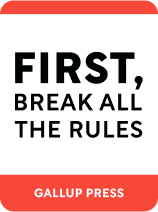

This article is an excerpt from the Shortform book guide to "First, Break All the Rules" by Gallup Press. Shortform has the world's best summaries and analyses of books you should be reading.
Like this article? Sign up for a free trial here .
What is a talent interview? How do you identify the talents of a candidate in an interview?
As the name suggests, a talent interview is geared towards discovering the talents of a candidate. In this interview, don’t discuss money, the company, or expectations. Focus solely on identifying the applicant’s talents.
When designing your talent interview, think about the following concepts.
How to Interview for Talent
While the hiring and interviewing process can be complicated and multifaceted, be sure to have a separate interview for talents. Here are some things to think about as you construct your talent interview.
Concept #1: Ask Open-Ended Questions and Listen
Allow the candidate to reveal their tendencies by asking them open-ended questions. Don’t guide their responses. Rather, let them answer using their own filters and talents. If you intervene too often, you won’t get a good sense of their genuine tendencies because they’ll begin to say what they think you want to hear.
For example, you’re interviewing a candidate for a nursing position. You ask them, “What do you think is the most important part of being a nurse?” As they respond, you notice that they never mention the patients. Because you didn’t guide them towards patient care, they answered the question in a way that is true to their tendencies.
Examples of open-ended questions include:
- How often should a manager give feedback?
- Is it important to be the best?
- What is the most important part of this position?
- What do you value in a workplace?
- How frequently do you like to hear about your progress?
- How important is “climbing the ladder?”
Concept #2: Focus on Specifics
Looking to past behavior is a great way to determine tendencies. To discover this in an interview, ask candidates to talk to you about specific events from their past work experiences. These can include questions about times where they overcame adversity, worked with someone they didn’t like, felt they did good work, and so on.
When listening to their response, focus on the specifics of what they’re saying. If they can quickly come up with specific examples, they’ve probably had many experiences like the one you’re asking about. This shows a talent. However, if they ramble on without giving any specifics, they probably haven’t had many experiences like the one you’re asking about. This shows a lack of talent.
For instance, you ask, “Could you tell me about a time when you helped a coworker with a project you were not a part of?” Initially, they ramble on about the importance of teamwork and collaboration. However, they can’t come up with any specific examples, which shows that they probably don’t have a tendency to help coworkers on projects they’re not involved with. This could imply a lack of talent surrounding collaboration, altruism, and/or empathy.
Concept #3: Look for the Signposts of Talent
Other than looking to past experiences, there are two other signposts of talent that you can use in your talent interviews:
- Fast Learning: When you first learn a new role, you learn the individual steps necessary to successfully execute your responsibilities. When your talents align with the role, you quickly learn how to excel in the position and the steps become habit. However, if your talents don’t align with the role, the learning process slows and the steps never become habit. Ask the candidate what types of roles and tasks they pick up quickly. This will give you insight into their talents and where they may fit in your organization.
- Satisfactions: Everyone has little things that give them satisfaction or fulfillment. For example, lawyers love winning a debate, accountants love when the math works, and salespeople love when they make a sale. These satisfactions reveal the candidate’s talents and give you insight into their motivations. Ask the candidate what brings them joy in the workplace and what day-to-day activities provide them with satisfaction.
Concept #4: Know What You’re Looking For
You can use similar questions for all of your talent interviews. In fact, this may be a good way to maintain consistency in your interview process. However, the desired answers to these questions will change based upon the requirements of different positions. With this in mind, specify unique talents for every role. Keep these unique talents in mind when you listen to your candidate’s responses.
For example, think of the following question: “How do you deal with confrontation?” If you’re interviewing a potential lawyer, the response you’re looking for may be, “I embrace confrontation. I try to articulate my side of the argument and get others to see my perspective.” However, you may not want this response if you’re interviewing a potential customer service representative.

———End of Preview———
Like what you just read? Read the rest of the world's best book summary and analysis of Gallup Press's "First, Break All the Rules" at Shortform .
Here's what you'll find in our full First, Break All the Rules summary :
- Why only 13% of the world’s workforce is actively engaged at work
- How to find strong employees and keep them
- The 12 questions to ask your employees that help you determine the strength of your organization






